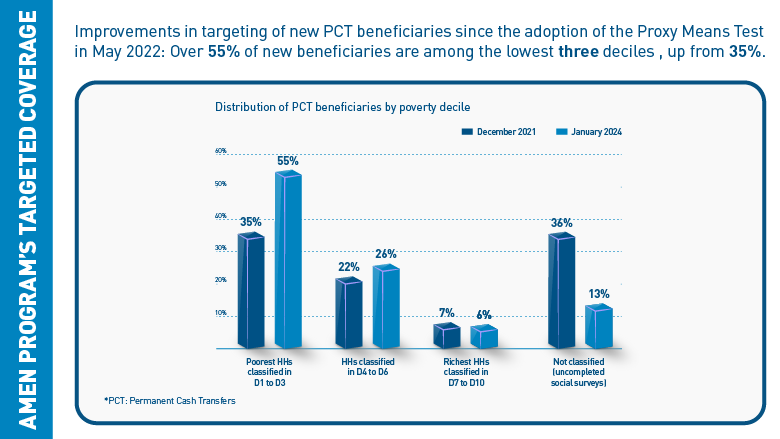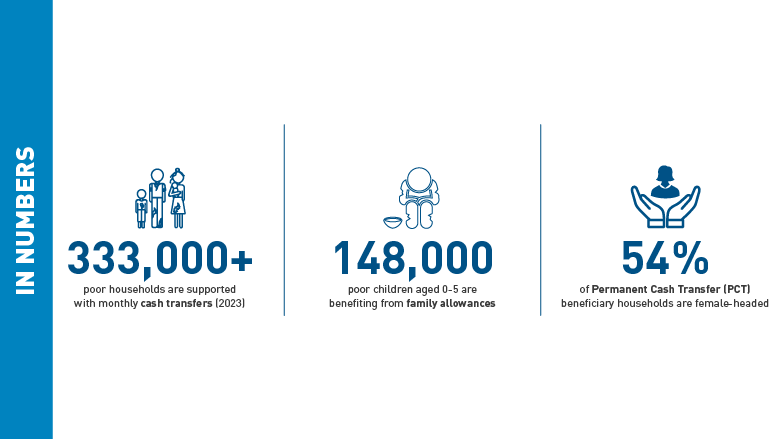I. Context
Tunisia is facing a challenging economic situation that affects its population, particularly the most vulnerable. Tunisia’s economic growth has been limited since 2011 – GDP growth was 1.7 percent between 2011 and 2019, compared to 3.5 percent growth between 2000 and 2011. Tunisia’s GDP is still below its pre-pandemic levels with 0.4 percent GDP growth in 2023 due to the fourth consecutive year of below-average rainfall, which compromised Tunisia’s agricultural production and slowed down further an already limited economic recovery. Consequently, macroeconomic indicators such as unemployment, inflation, and poverty levels have declined. The unemployment rate stood at 16.4 percent as of the fourth quarter of 2023, while food inflation was 10.2 percent in March 2024, particularly affecting households with lower incomes. Economic growth had been pro-poor from 2000 to 2015, resulting in a decline in poverty levels from 25.4 percent to 15.2 percent. However, this previous positive trend reversed recently as the poverty rate increased from 15.2 percent in 2015 to 16.6 percent in 2021 partly due to the COVID-19 pandemic. The World Bank’s Tunisia Country Partnership Framework CPF FY (2023-27) is supporting the Government of Tunisia to tackle the abovementioned challenges, notably by strengthening the country’s human capital and the resilience of households to shocks through a stronger social protection system.
The AMEN Social Program – Tunisia’s flagship social protection program – continues to provide comprehensive assistance to the most vulnerable. The Ministry of Social Affairs (MoSA), through AMEN, provides monthly cash transfers to over 333,000 poor households (over 10 percent of the total population). The households are targeted using a proxy-means test (PMT) methodology that evaluates multi-dimensional poverty. Supplemental monthly cash transfers are delivered to support over 148,000 vulnerable children under the age of six as well as annual transfers before specific holidays and to households with school-aged children before the start of the school year. AMEN also provides free medical services to the same 333,000 poor households and subsidized medical services to an additional 620,000 low-income households. AMEN beneficiaries are also eligible for grants to start or expand small businesses. During the COVID-19 pandemic, the AMEN Program facilitated the distribution of emergency cash transfers to approximately 900,000 low-income households, alleviating the economic shocks of the sanitary crisis. The AMEN Program not only serves as an effective tool to alleviate poverty, but it is also redistributive, helping to reduce inequality levels in Tunisia.


